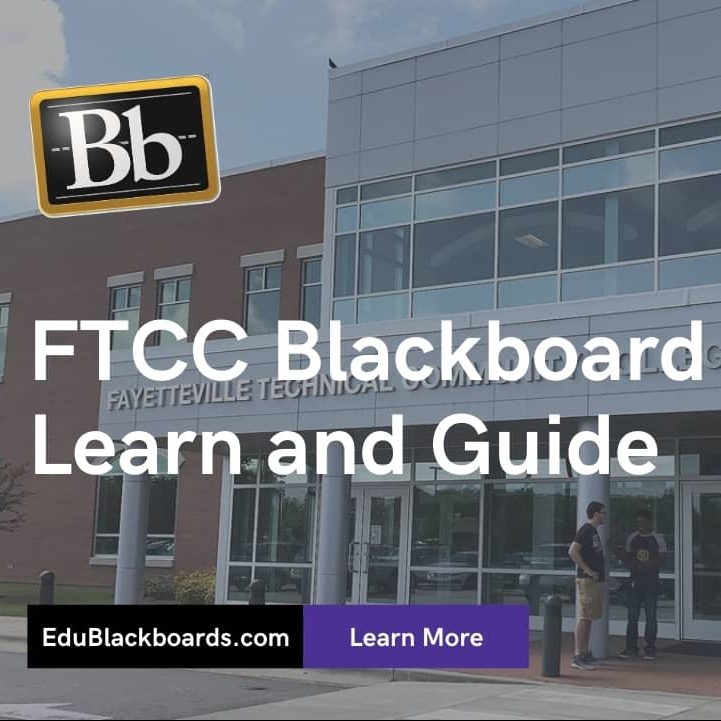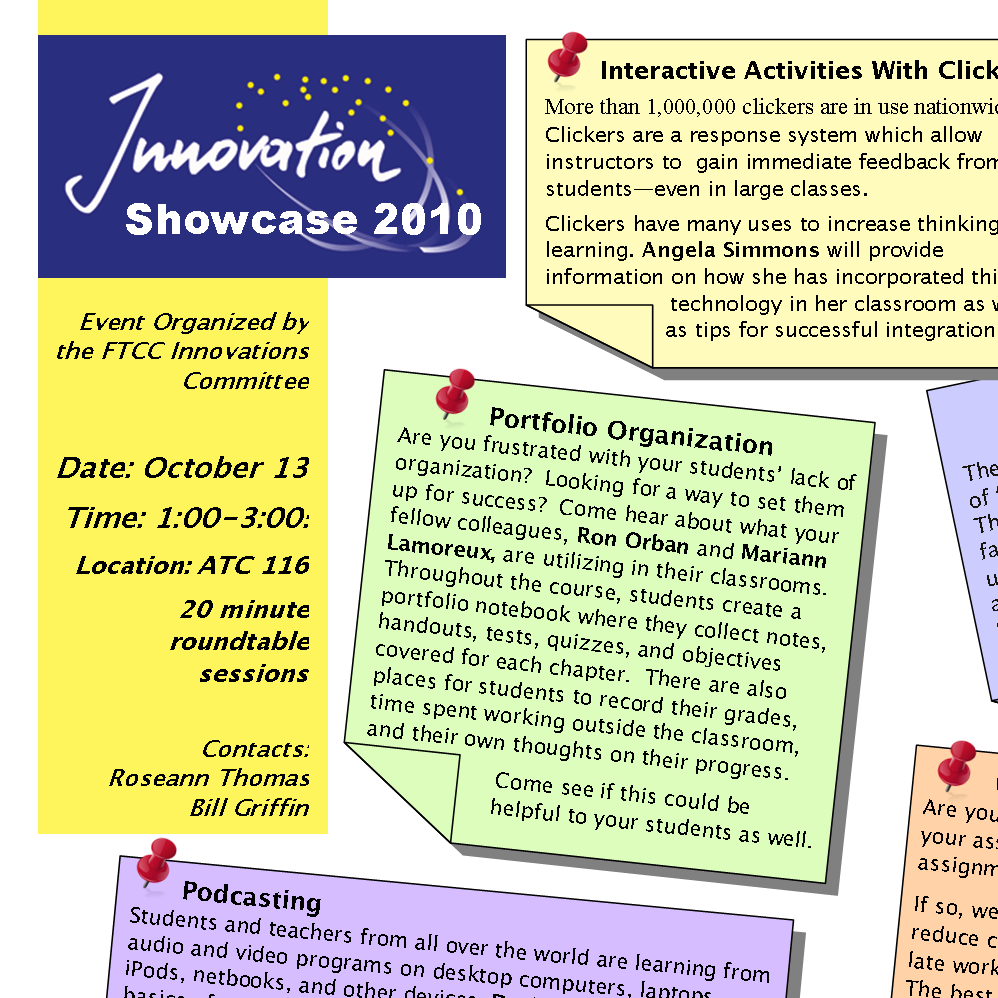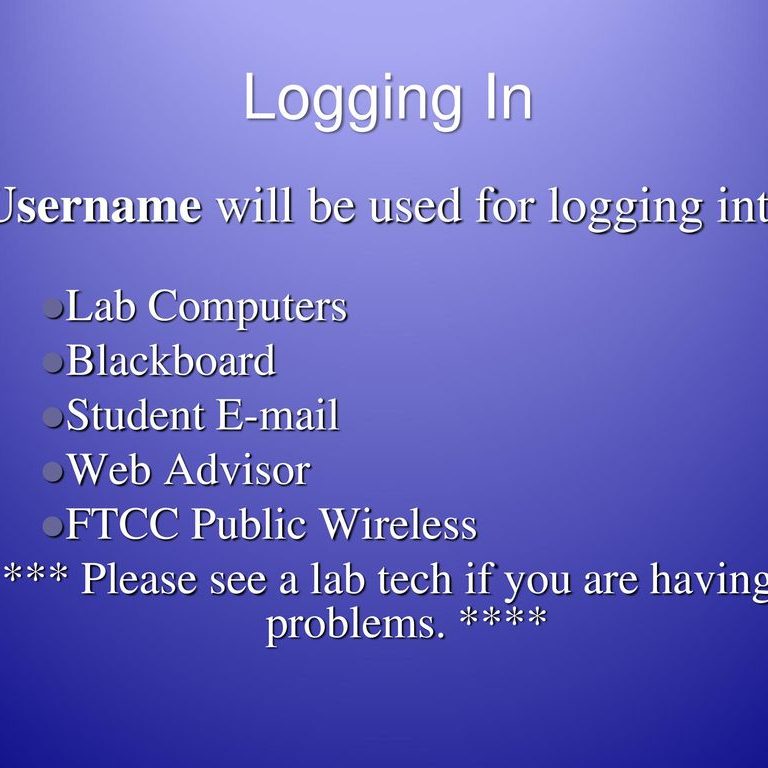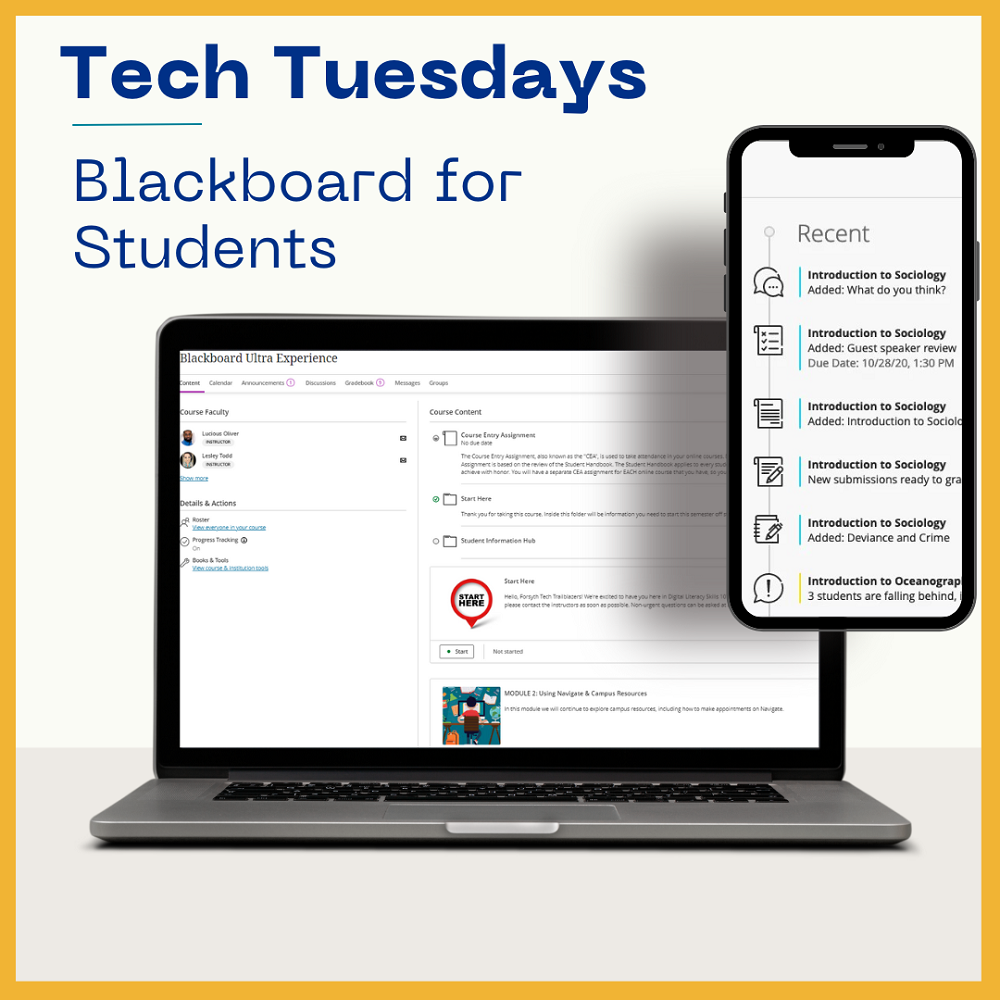Blackboard is an essential tool for students at Fayetteville Technical Community College (FTCC). This comprehensive platform provides a variety of resources and tools to aid in your academic success. Whether you’re a new student or looking to refine your skills, knowing how to navigate and maximize the potential of Blackboard can make a big difference in your learning experience. Here’s a detailed guide to help you get the most out of Blackboard FTCC.
Getting Familiar with the Interface
Exploring the Dashboard
Your first encounter with Blackboard FTCC begins at the dashboard, the main landing page where you can access your courses, notifications, and updates. Spend some quality time here to understand the layout and features it offers. You’ll find that the dashboard is designed to be user-friendly, with upcoming deadlines and recent activity prominently displayed. This is the central hub from which you’ll navigate to other parts of Blackboard. Familiarizing yourself with it early on will make the transition into each new course smoother.
The left-hand menu is your navigation guide. It includes links to key areas such as “Courses,” “Calendar,” “Messages,” and “Tools.” Knowing what each link does will save you time and reduce frustration throughout the semester. For example, the “Courses” link takes you directly to a list of all your current classes, while the “Tools” link provides access to various utilities like the gradebook or the digital library. Spend some time clicking through each item in the menu to understand its purpose and functionality. This will come in handy when you need to find something quickly.

Reviewing the Syllabus
For each course, start by thoroughly reviewing the syllabus and course outline. This document provides a roadmap of the schedule, deadlines, and expectations you need to meet. It often includes important information like grading policies, required textbooks, and contact details for your instructor. Save a copy of the syllabus and refer back to it frequently to ensure you’re staying on track with your assignments and readings. Highlight key dates and milestones to help you manage your workload effectively.
Using the “Search” Feature
Make use of the “Search” feature to find specific topics or materials quickly. This can be particularly useful when you need to revisit a particular part of the course. For instance, if you’re preparing for a midterm and need to review lectures on a specific topic, the search function can save you the hassle of scrolling through endless pages of content. Many students overlook this tool, but mastering it can significantly streamline your study sessions.
Utilizing Communication Tools
Using the “Messages” Feature
The “Messages” feature allows for private correspondence with your instructors. Clear and timely communication can significantly enhance your understanding of the material. This tool is ideal for asking questions about assignments, seeking feedback on projects, or discussing any concerns you might have. Always be professional and concise in your communications. A well-written message can prompt swift and useful responses from your instructors.
Participating in “Discussion Boards”
Engage in discussion boards to interact with classmates, share ideas, or ask questions. Active participation here can also improve your grasp of the subject matter. Discussion boards are often used for graded assignments, so don’t underestimate their importance. Regularly contribute thoughtful posts and respond to your classmates’ entries. This not only aids your learning but also helps build a sense of community in an online course.

Managing Your Tasks and Deadlines
Leveraging the “Calendar” Feature
Use Blackboard’s “Calendar” to keep track of important dates and deadlines for all your courses. You can even sync this with your personal digital calendar for added convenience. This feature shows you when assignments are due, when exams are scheduled, and when other important events are happening. Regularly updating and checking your calendar can prevent last-minute surprises and help you allocate sufficient time to different tasks.
Setting Reminders and Notifications
Set up reminders for upcoming assignments, quizzes, and exams. Also, make good use of the “To-Do List” and “Notifications” features to ensure you don’t miss any crucial tasks. These tools are designed to help you stay organized by alerting you to upcoming deadlines and new course materials. Taking a few moments to configure these settings at the start of the semester can save you a lot of hassle later on.
Utilizing Multimedia and External Resources
Engaging with Multimedia Content
Make full use of video lectures, podcasts, and interactive simulations provided within Blackboard FTCC. These resources cater to different learning styles and can help deepen your understanding of complex topics. For example, if you’re a visual learner, video lectures can be invaluable. Interactive simulations can also offer hands-on experience with the material being studied, making abstract concepts more concrete and understandable.
Exploring Integrated Academic Resources
Blackboard often integrates with library databases and other academic resources. Take advantage of these tools for research and reference purposes. The digital library can provide you with access to scholarly articles, e-books, and other critical resources necessary for completing your assignments. Understanding how to access and utilize these resources can give you a significant edge in your academic performance.

Taking Advantage of Assessments and Feedback
Submitting Assignments Timely
Use Blackboard’s “Assignments” feature to submit your homework on time. Pay close attention to any provided rubrics to understand the grading criteria. Before submission, double-check that you’ve met all the requirements outlined in the assignment instructions. Timely submissions show that you are responsible and committed, and they allow you to avoid penalties for late work.
Reviewing Feedback for Improvement
Carefully review the feedback provided by instructors. Use these insights to identify areas requiring improvement and prepare better for future assessments. Often, instructors give specific advice on how to improve, which can be crucial for your academic growth. Take this feedback seriously and apply it to your future assignments and exams. It can be the difference between merely passing a course and excelling in it.
Using Group Tools and Peer Interactions
Participating in Group Projects
Group projects are a common part of many courses and can be efficiently managed using Blackboard’s group tools. These tools allow you to collaborate with your peers through shared files, group discussion boards, and collaborative workspaces. Make the most of these features by actively participating and communicating with your group members. Set up regular virtual meetings using tools like Blackboard Collaborate or external platforms such as Zoom to ensure everyone is on the same page. Effective group collaboration not only helps you complete projects more efficiently but also enhances your teamwork skills, which are valuable in any career.
Engaging in Peer Review Activities
Peer review activities are another excellent way to enhance your learning experience. Blackboard often facilitates these activities by allowing students to upload their work and provide feedback to their peers. Take peer review seriously, as it gives you an opportunity to critically evaluate others’ work and reflect on your own. Providing constructive feedback can deepen your understanding of the subject matter, and receiving feedback can help you identify areas for improvement that you might have overlooked. Engaging in peer review also helps build a sense of academic community and accountability.
Accessing Help and Resources
Utilizing the “Help” Button
Don’t hesitate to use the “Help” button for instant access to user guides and FAQs. This can resolve many common issues you might face while navigating Blackboard. The help section is often overlooked, but it is a wealth of information that can quickly solve technical problems or clarify doubts about using the platform’s features.
Contacting Technical Support and Academic Resources
If technical issues arise, the “Technical Support” section is there to assist you. Additionally, leverage Blackboard FTCC’s academic resources such as tutoring and advising, accessible often through Blackboard. Don’t wait until you’re falling behind to seek help. Early intervention can prevent small issues from becoming significant obstacles to your success. Utilizing these resources shows that you are proactive about your education and willing to seek out the support you need.
By taking full advantage of Blackboard FTCC tools and features, you can significantly enhance your learning experience. The platform is designed to support your academic success, so make the most of it! Stay engaged, organized, and proactive to achieve your academic goals.
